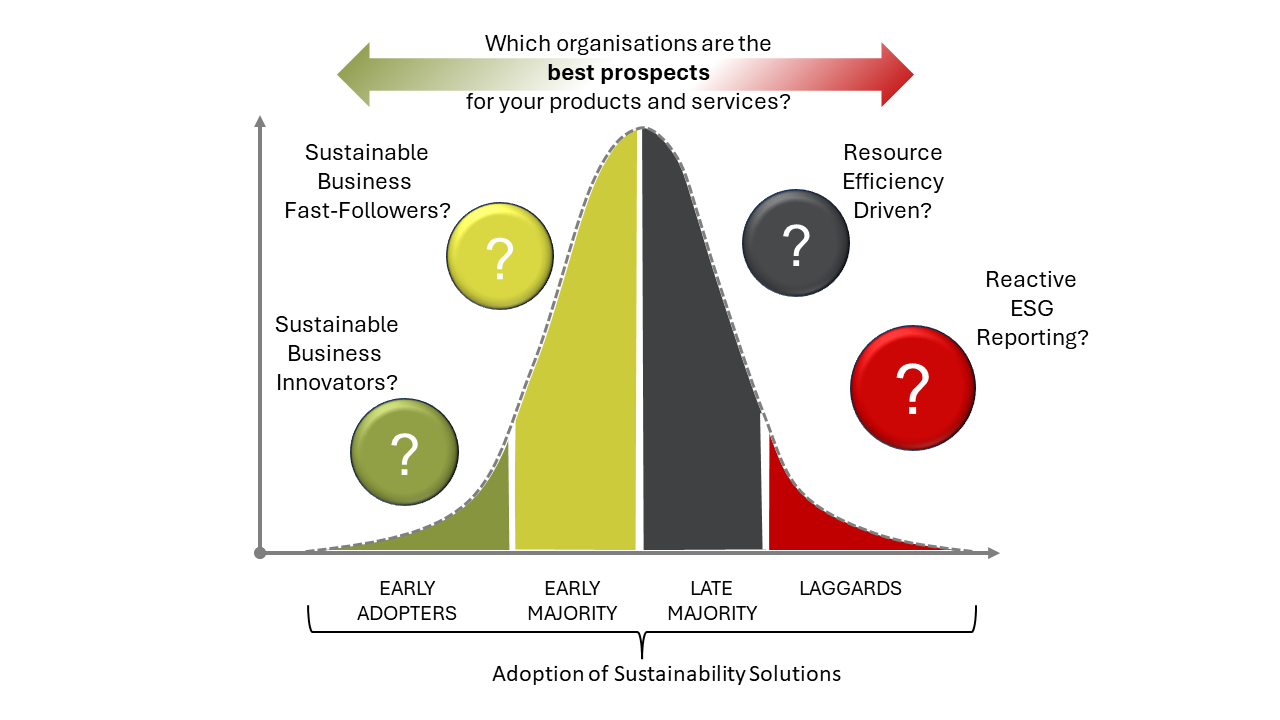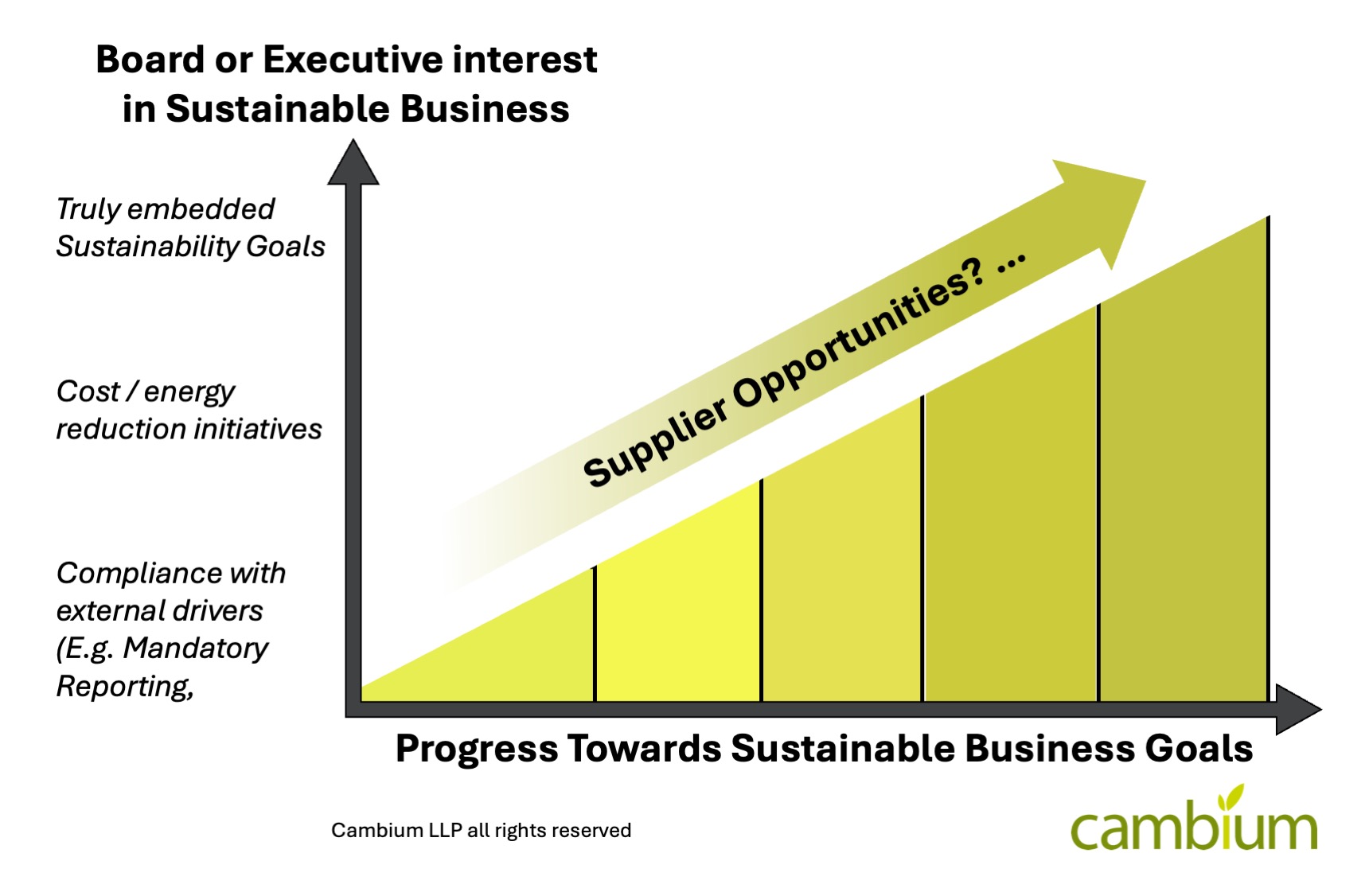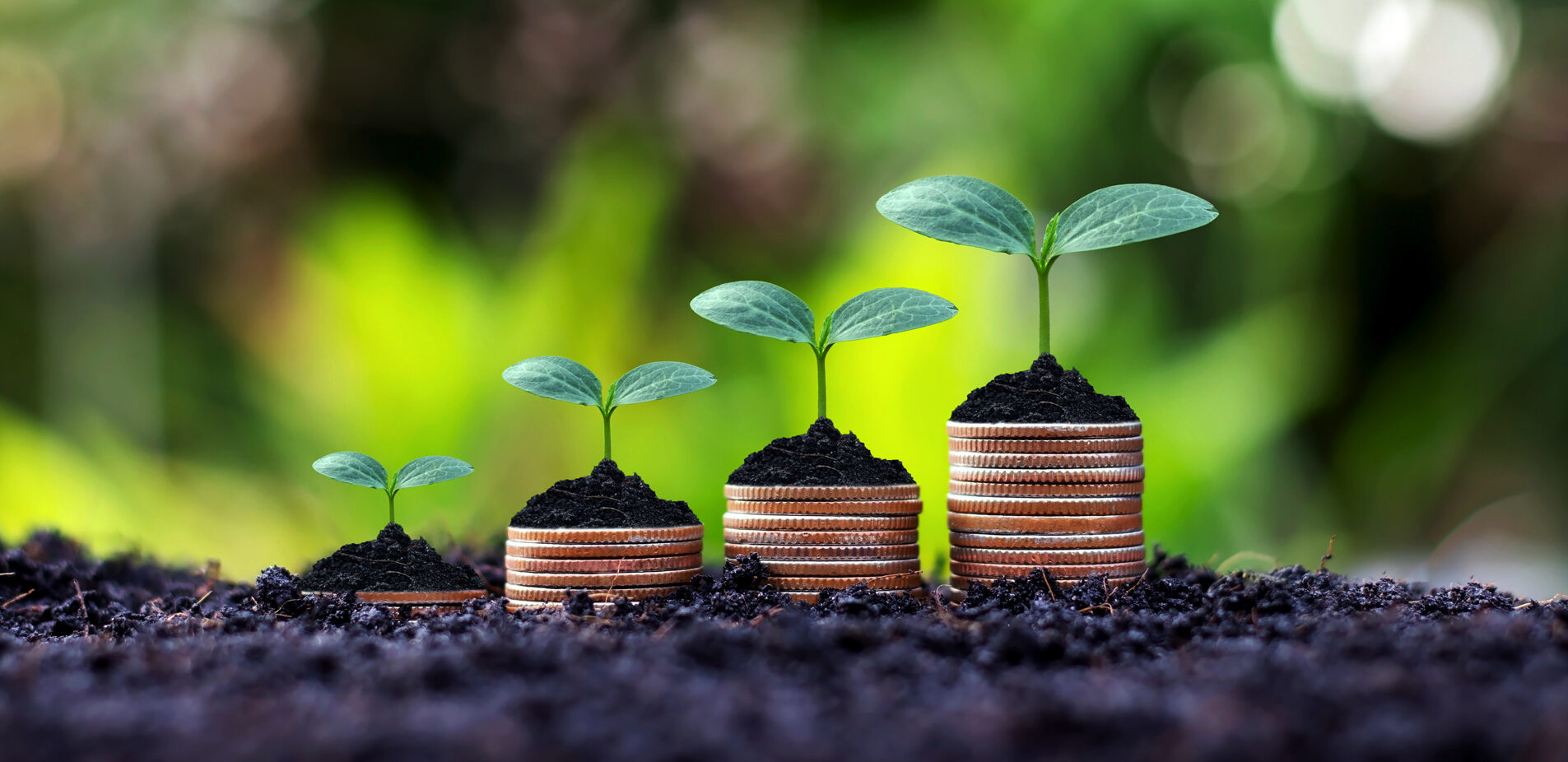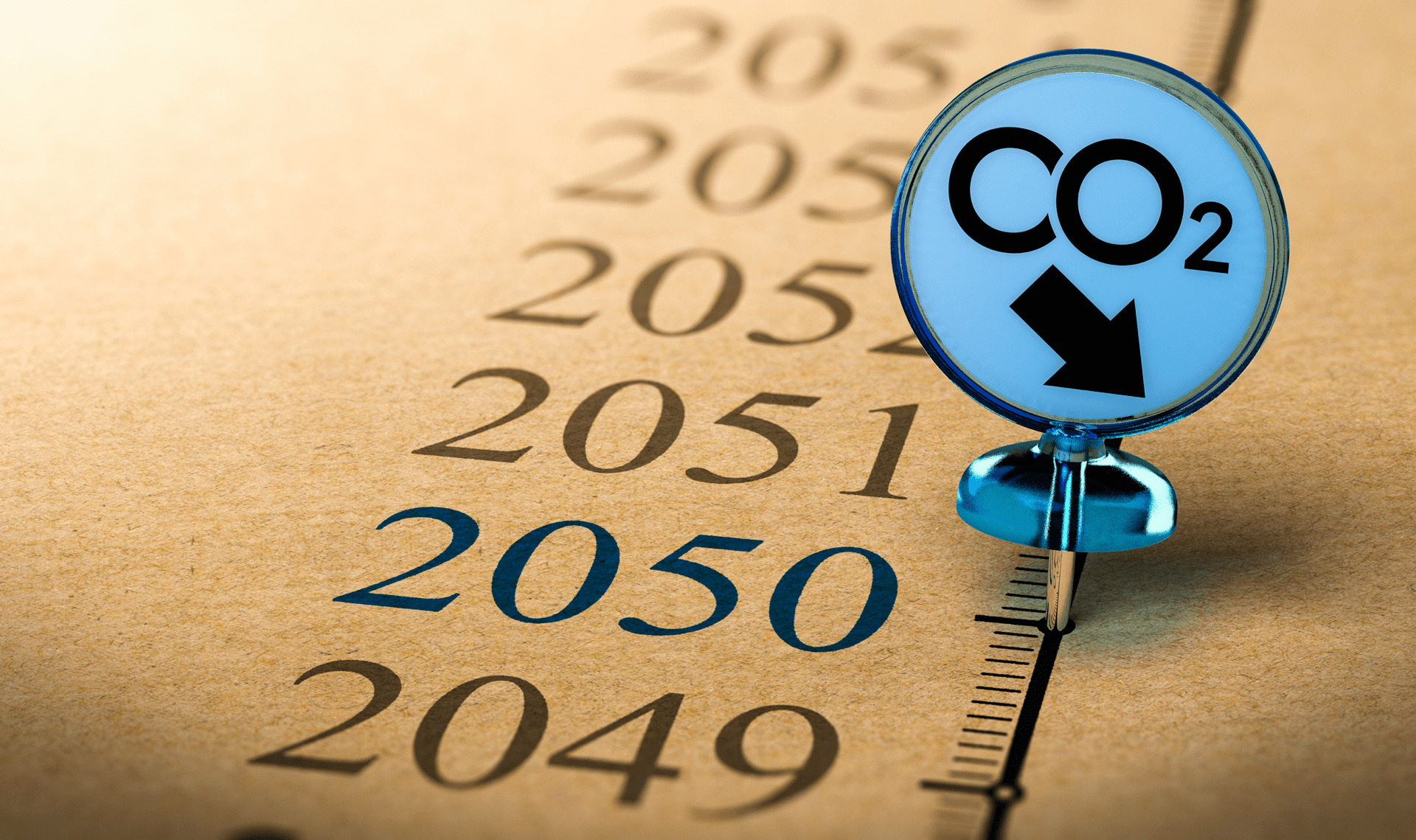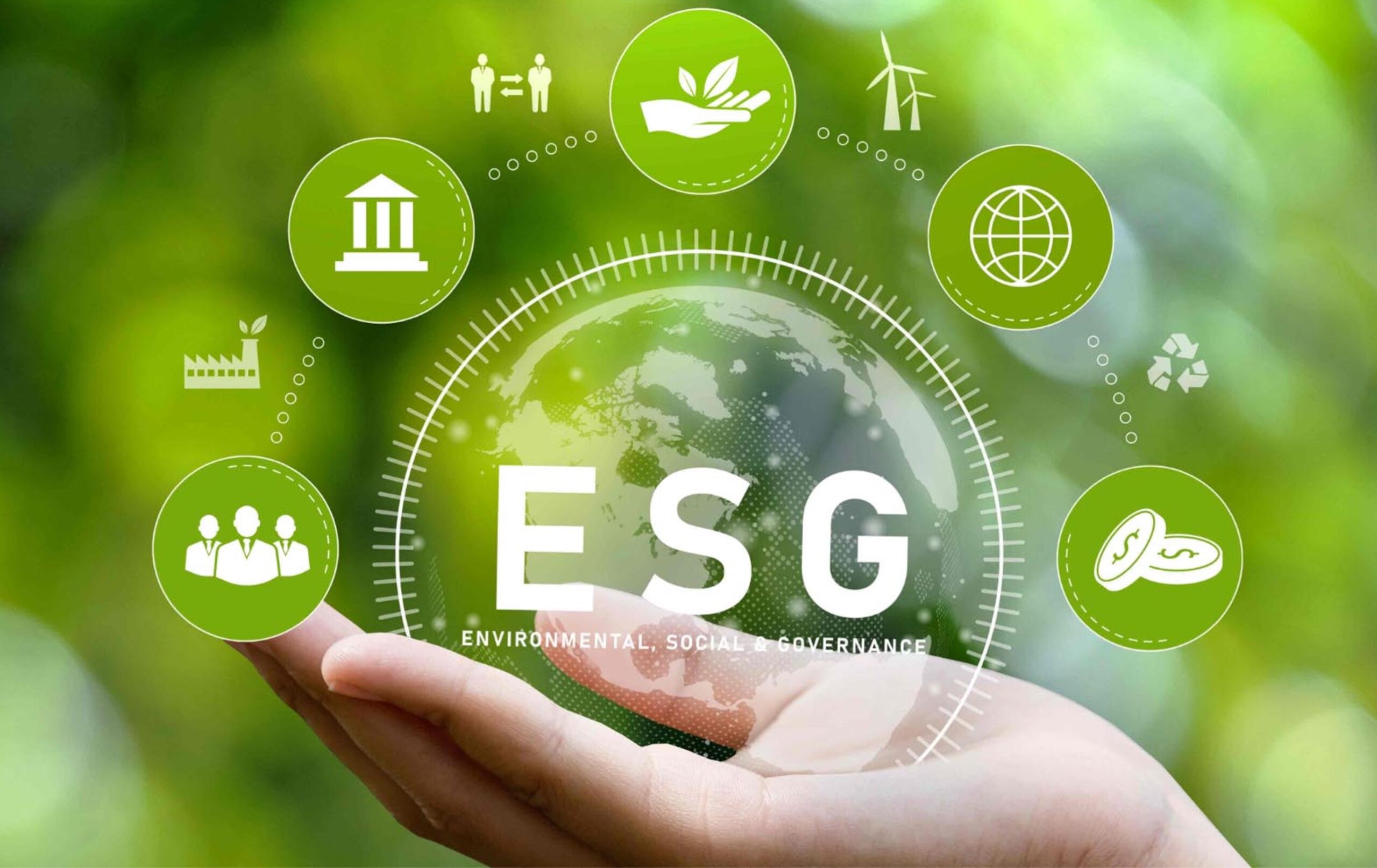Elevate Your Game: Leveraging Sustainability in Sales & Marketing
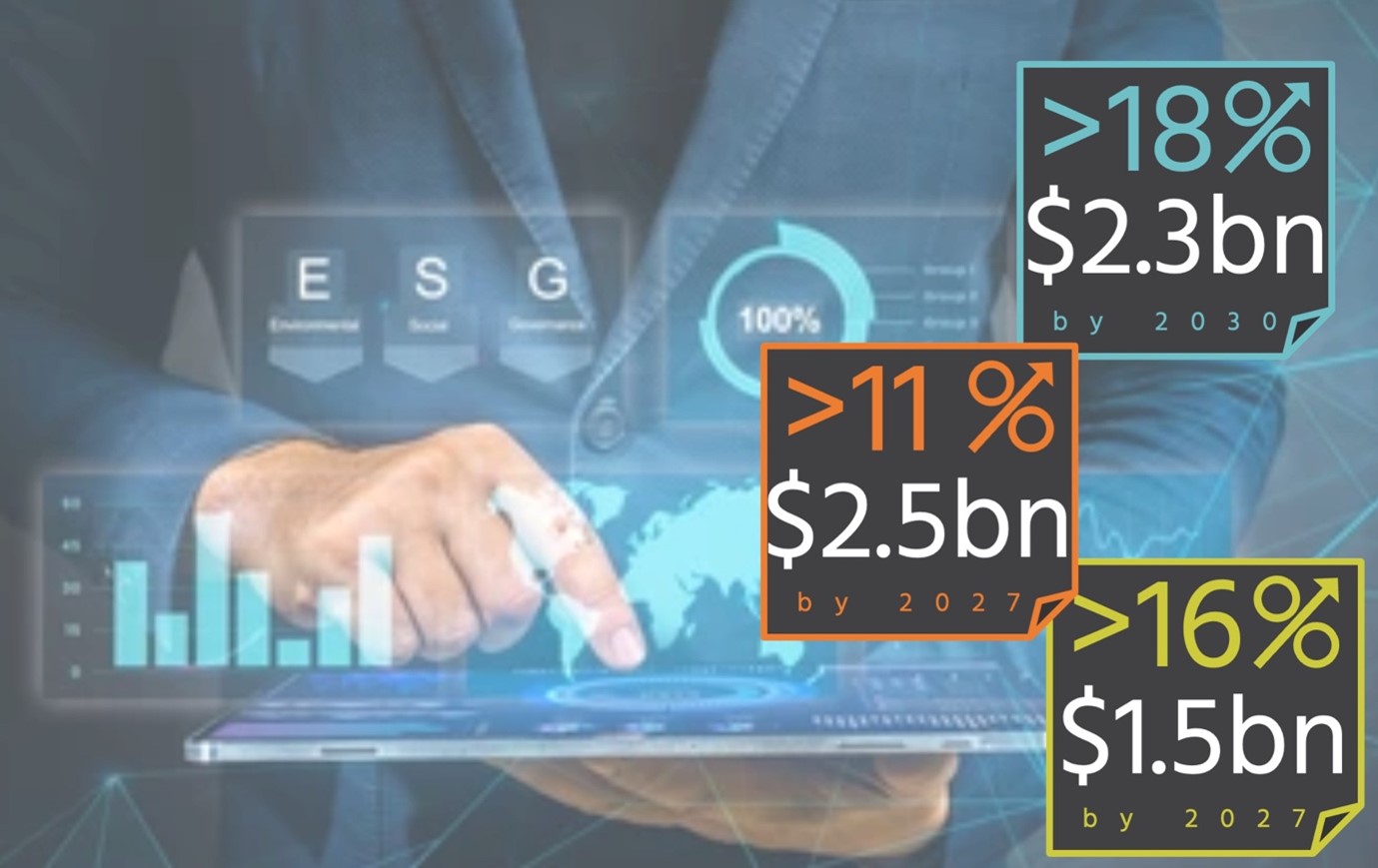 The landscape of sustainability presents unprecedented opportunities for sales and marketing professionals. In the UK alone, the Confederation of British Industry (CBI) forecasts that global investments aimed at achieving Net Zero will funnel more than £70 billion in exports into the UK economy by 2030. Similarly, in the EU, evolving Corporate Social Responsibility (CSR) and Environmental, Social, and Governance (ESG) regulations are poised to open new markets worth $2.34 billion for software and $70 billion for services by the same year.
The landscape of sustainability presents unprecedented opportunities for sales and marketing professionals. In the UK alone, the Confederation of British Industry (CBI) forecasts that global investments aimed at achieving Net Zero will funnel more than £70 billion in exports into the UK economy by 2030. Similarly, in the EU, evolving Corporate Social Responsibility (CSR) and Environmental, Social, and Governance (ESG) regulations are poised to open new markets worth $2.34 billion for software and $70 billion for services by the same year.
These figures aren’t just impressive; they signify vast opportunities for businesses equipped with relevant products and services. However, this impressive market size does not automatically translate into certain success for suppliers of sustainable products and services. For sales and marketing teams in these businesses, taking advantage of these growth opportunities demands the use of sales and marketing strategies tailored for success in these sustainability-driven markets.
For these suppliers aiming for growth in B2B markets, sales and marketing team efficiency is critical. This article discusses the importance of strategically selecting those key client audiences to focus on at the beginning of a sustainability focused sales initiative.
Understanding the Adoption Curve for Strategic Targeting
In an earlier blog (see below for link) , we examined how the Adoption Curve can help identify businesses most likely to invest in offerings with strong sustainability credentials. It is especially useful for creating a focused list of prospects, assisting marketing teams in promoting their products to interested businesses and enhancing lead generation efforts.
The Significance of the “Sustainability Journey”
To enhance this prospect list further, our previous article (see Link below) delved into the common “sustainability journey” many businesses undergo as they implement best practices in sustainability. The insights from this exploration are crucial for suppliers to tailor their marketing strategies and content to match a client’s expected progress on this journey.
Shifting our attention to sales, we now examine the impact of sustainability on B2B sales initiatives and how it shapes the performance of sales teams in this changing environment.
Identifying and Engaging Key Decision-Makers
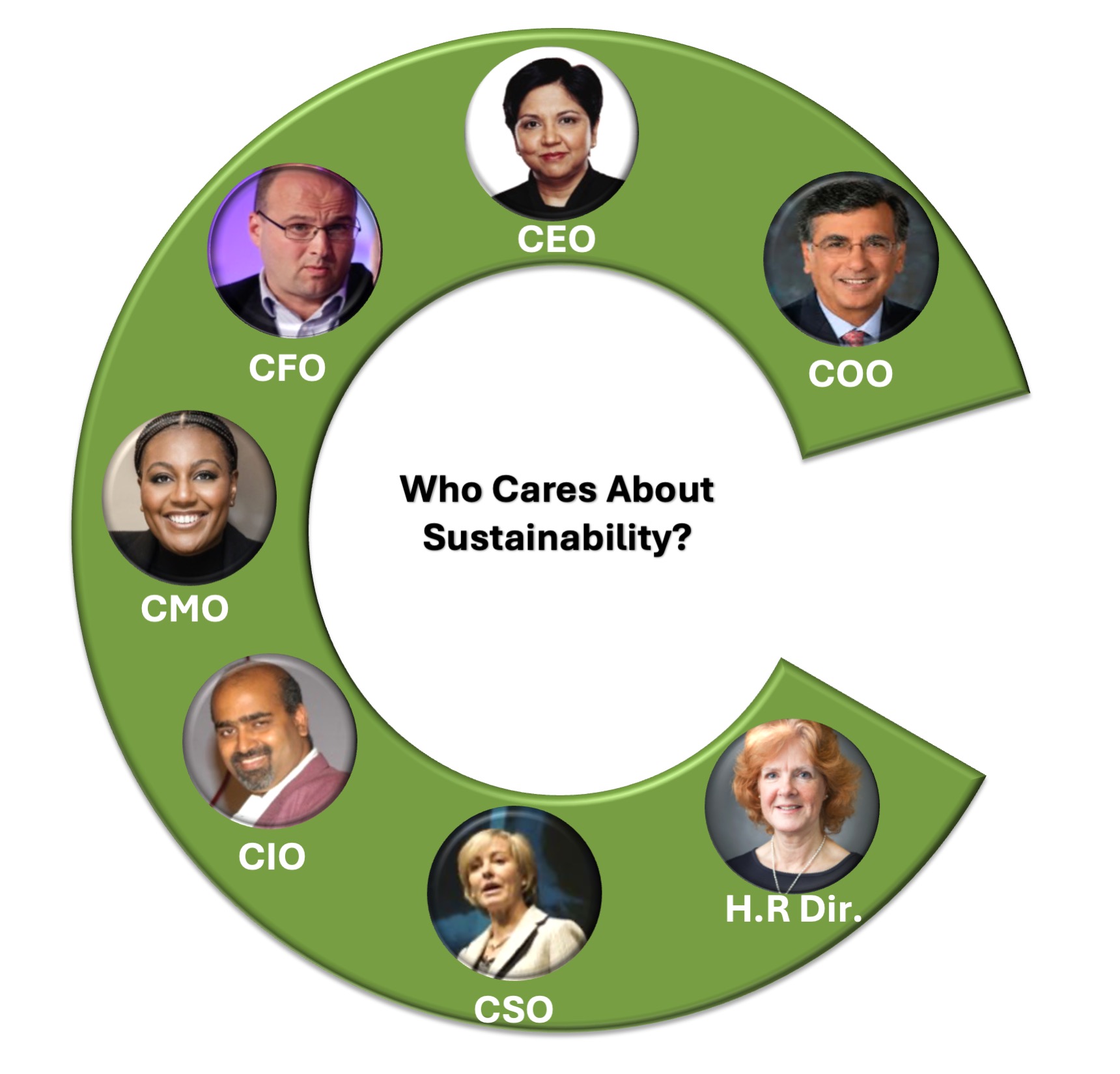 A key task for sales professionals involves pinpointing roles within a potential client’s organisation that are pivotal in embracing sustainable practices.
A key task for sales professionals involves pinpointing roles within a potential client’s organisation that are pivotal in embracing sustainable practices.
The initial step is to thoroughly understand the target business’s publicly stated sustainable goals. These could include ambitions for ESG (Environmental, Social, and Governance) compliance, decarbonisation targets aimed at achieving net zero, or local corporate social responsibility initiatives.
Priorities will vary from one business to another. Consequently, undertaking this research is fundamental for salespeople before initiating contact with a client.
Once a critical sustainability objective of the target business is identified, the focus shifts to establishing a conversation about how your company can aid in reaching this goal.
This necessitates an in-depth exploration of the company’s decision-making framework to pinpoint those roles, and consequently the individuals, charged with overseeing sustainability goals. Given the broad impact of sustainability programmes, numerous departments are likely to have a stake in these efforts.
Preparatory Research into a Client’s Sustainability Ambitions is Vital
Today’s abundance of publicly available data, including financial statements and sustainability reports, provides sales teams with critical insights into a target clients’ sustainability goals and priorities. Leveraging this data helps in pinpointing not just the companies most aligned with sustainability, but also the key figures within those organisations, who are most open to sustainability-driven sales propositions.
For sales leaders in businesses with sustainable products or services, understanding your prospects’ sustainability profile is not just advantageous; it’s a necessity for achieving success in the market. By adapting your sales tactics to align with the unique needs and priorities of these pivotal decision-makers, you can markedly boost the efficiency and impact of your sales efforts.
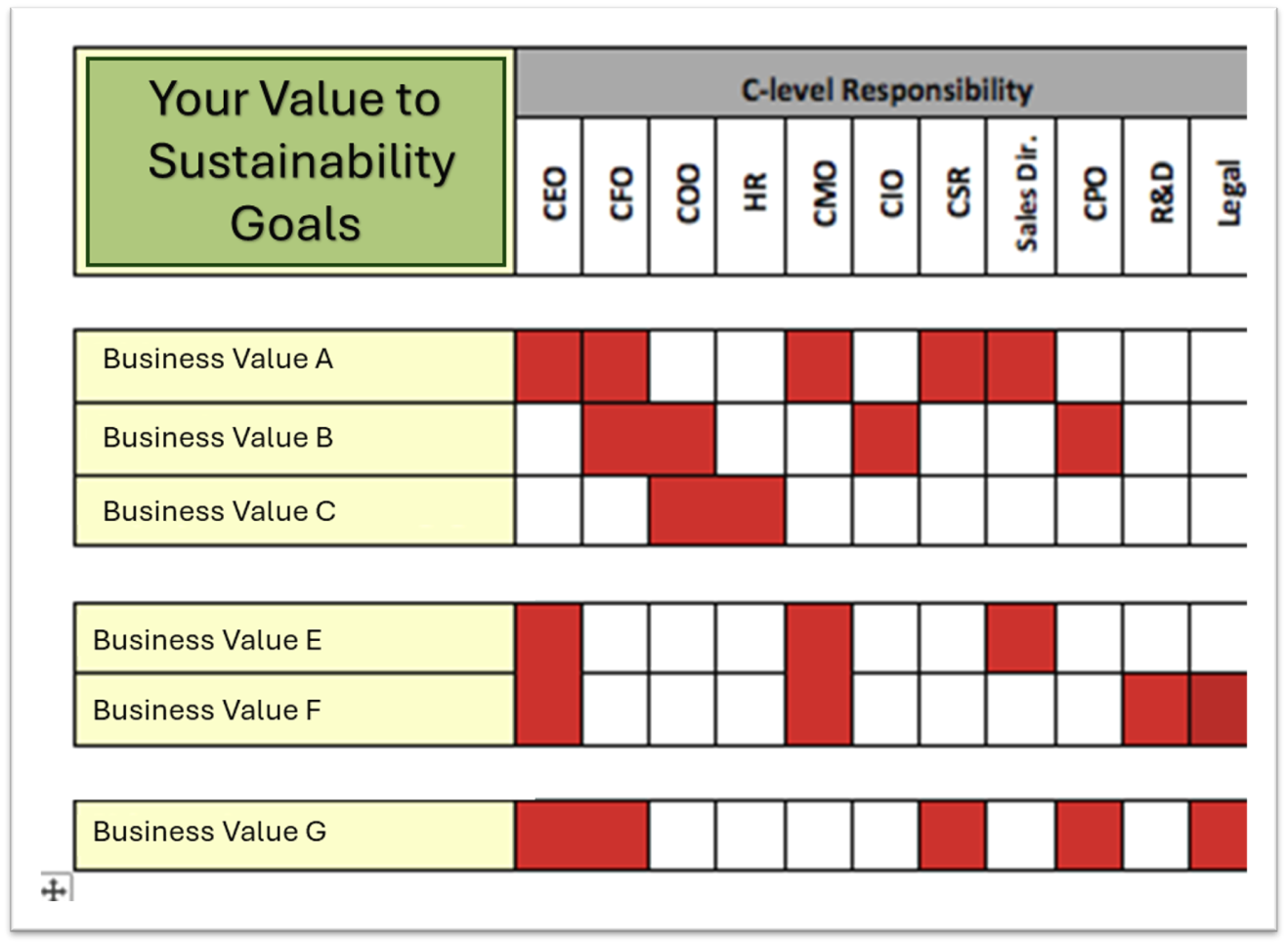 Crafting a Tailored Sales Approach
Crafting a Tailored Sales Approach
The roles involved in driving sustainable practices within an organisation cover a broad spectrum, from sustainability officers and procurement managers to CEOs and CFOs.
Each carries distinct priorities and reasons for pursuing sustainable actions. These motivations vary significantly; some may focus on cutting operational costs, while others aim to enhance the company’s performance to align with external stakeholders’ expectations. Sustainability innovators within the prospect may see sustainability programmes as avenues to unlock new business opportunities, whereas risk focused managers prioritise compliance with legal standards.
Grasping the variety of criteria that different decision-makers apply when assessing external suppliers offerings is crucial. For sales teams, pinpointing the most effective entry point for their offering is key, identifying which motivations their proposal can satisfy to foster value and advancement. Sales strategies, therefore, must be adaptable to meet a range of criteria.
Equipped with a clear understanding of a prospect’s sustainability priorities and the crucial decision-makers, sales teams are better positioned to customise their strategies. By aligning their approaches to address the distinct concerns and evaluation criteria of each stakeholder in the purchasing group, a personalised contact strategy not only improves the quality of engagement with potential client audiences, it also markedly improves the conversion rate of qualified leads into actual sales.
Get an edge on your competition
The shift towards sustainability is reshaping the B2B marketing and sales arena. Fuelled by major global trends, including the:
- resource demands of a growing global population
- accelerating shifts in our climate, and
- importance of diversity, equality, and inclusion.
As a result the role of sustainability in business decisions is set to persist for many years. For sales and marketing professionals, comprehending how sustainability influences a prospect’s choice of suppliers will continue to be an essential sales and marketing skill for many years ahead.
Boost Your Marketing and Sales Effectiveness in Sustainability Driven Markets
If you wish to enhance your B2B sales and marketing outcomes within these growing sustainability markets, Cambium is well-positioned to assist. Using over a decade of experience in supporting B2B sales and marketing professionals to leverage sustainability drivers of decisions has informed our practical and proven methodology. It is this foundation that we use to help our sales and marketing clients to achieve even more accomplished levels of performance.
Our specialisation extends to refining marketing messages and advancing sales strategies, specifically for those dedicated to sustainability. This includes marketing and sales training to use our frameworks and methods to improve the productivity of your marketing and sales campaigns. Learn more about this training here.
With our guidance, your business stands to benefit from improved engagement with the growing market for sustainable business solutions and services.
To learn more about any of our sustainable sales and marketing services click here to set up an exploratory call with one of the Cambium team.
Subscribe to Growth Rings
Keep ahead with our customised insights and updates from the forefront of sustainable innovation. Join Growth Rings, our complimentary monthly newsletter, for indispensable resources for those committed to making a positive impact through business.
It’s essential reading for anyone dedicated to succeeding sustainably and “doing well by doing good”.
Blog – Understanding the Adoption Curve for Strategic Targeting



